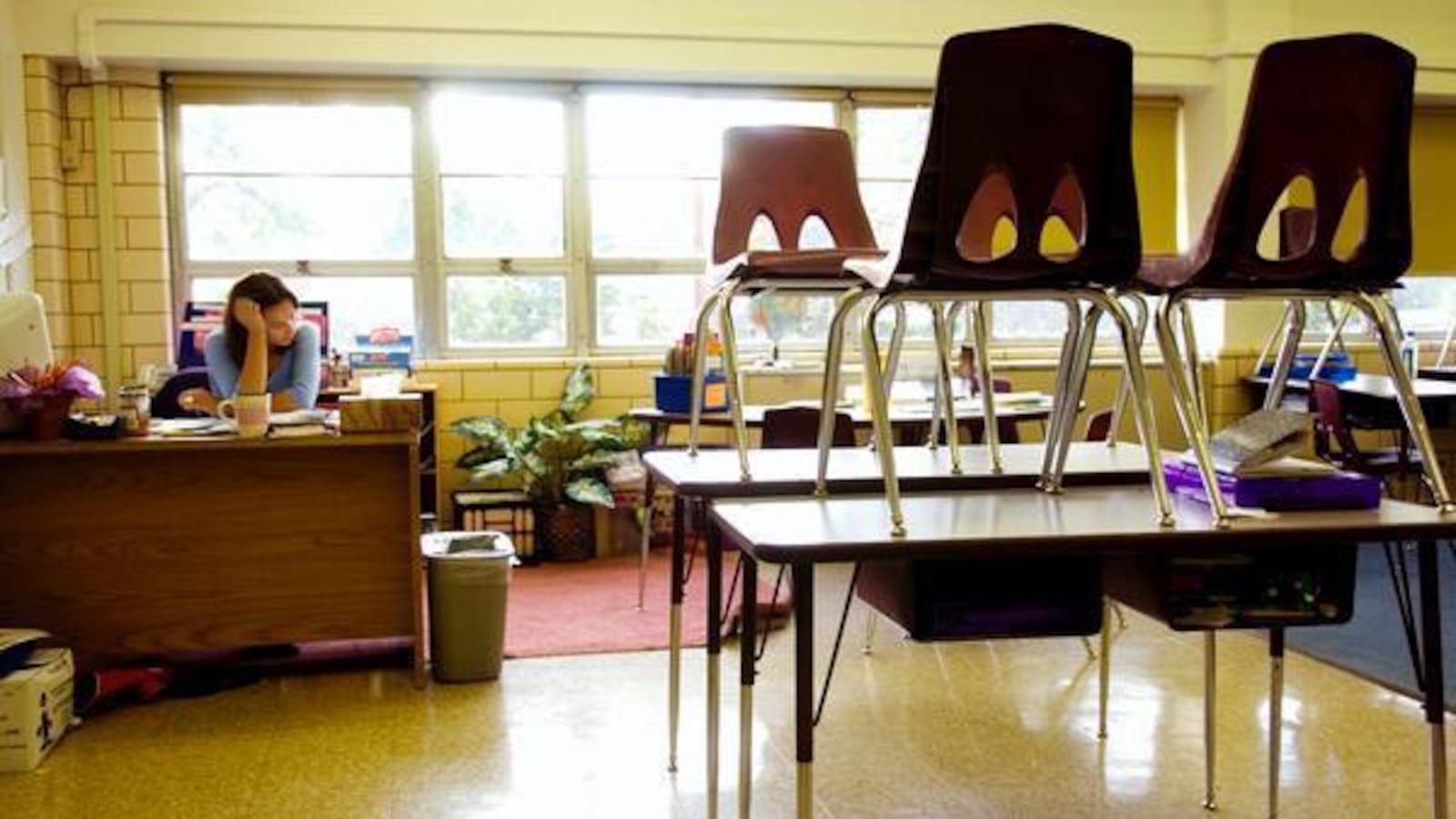Facing alarming teen suicide rates, Colorado could put another $1 million a year into training teachers in what’s known as mental health first aid.
The Senate Education Committee on Thursday unanimously supported two related bills, one authorizing spending on training for teachers and another that would allow students to take an excused absence for mental health needs, like anxiety or depression.
Just as regular first aid courses teach lay people how to staunch bleeding from a wound or perform CPR, mental health first aid trains them how to talk someone through a crisis and recognize warning signs, as well as better understand the resources that are available to people in crisis.
“Our educators are on the front lines,” said state Sen. Rhonda Fields, an Aurora Democrat and the bill’s sponsor. “They see the risk factors, a child being sad when they were not the day before or when they’re more emotional. Our educators can redirect that situation and make sure that student gets the help they need.”
Kathryn Brown, a counselor at an alternative high school in Englewood, a south Denver suburb, described a recent incident in which a student with a history of self-harm grabbed a pair of scissors, ran from the classroom, and locked himself in a closet. Two teachers had to talk to the student through the door until help arrived.
But Brown also cautioned that mental health first aid, while critically important, cannot be a replacement for adding more counselors, social workers, and school psychologists, noting: “We need professional development for teachers, and we need more mental health staff.”
Both bills came out of the Interim School Safety Committee, which convened through the summer and fall, in the wake of a fatal shooting at STEM School Highlands Ranch. Other bills recommended by the school safety committee would create a working group to explore further solutions and make changes to Safe2Tell, Colorado’s once-innovative anonymous tip line.
In a separate hearing Thursday, the Safe2Tell bill unanimously passed the House Education Committee. Most calls to the tip line now involve children in mental health crisis, not threats to campus safety. At the same time, the tip line is sometimes abused by students who want to harass a classmate. The bill changes how calls are handled to better reflect that reality and creates an annual advertising campaign to raise awareness about the tip line.
The bill creating the working group passed the Senate Education Committee Wednesday.
The Interim School Safety Committee steered clear of more controversial gun control legislation, but Democratic lawmakers separately plan to introduce a bill requiring safe storage of firearms.
The mental health first aid bill was introduced on the first day of the session as Senate Bill 1, indicating its high-priority status to lawmakers. It continues existing programs that were in danger of ending due to lack of funding.
That bill calls for Colorado to spend up to $1 million a year for the next four years on these programs. Legislative analysts estimate the state could train around 650 educators a year, while the demand is much higher, between 1,000 and 1,500 a year. The bill envisions a “train the trainer” approach in which educators can take what they’ve learned and teach it to other adults in their schools. Participation in the training would be voluntary.
In recent years, Colorado has passed a number of other bills to provide more training for teachers and other school employees in mental health and suicide prevention. Last year, the legislature even approved funding for more social workers and behavioral health professionals in schools, but only as limited grant programs. Many Colorado schools don’t have a full-time mental health worker of any kind.
Lorrie Yoshinaga, a third-grade teacher in the Cherry Creek school district, said she needs more tools to help her students. She has seen young children throw punches — and desks.
While the ultimate goal is lower youth suicide rates and more connected, supportive school environments, Yoshinaga had another measure of success in mind.
“Success is when teachers want to go to school to teach,” she said. “They’re not crying in their car. They’re not crying in a closet. Because they know how to help their students.”
Brown said that too often, training for teachers looks like someone explaining the brain science on how trauma affects children rather than offering practical tools.
“What teachers don’t have is really specific strategies they can implement in the classroom, ones that are both universal and help everyone but also that can help a student having a panic attack under the desk,” she said.
All four bills still need to pass both the full House and Senate before going to the governor’s desk. They are not expected to face opposition.

